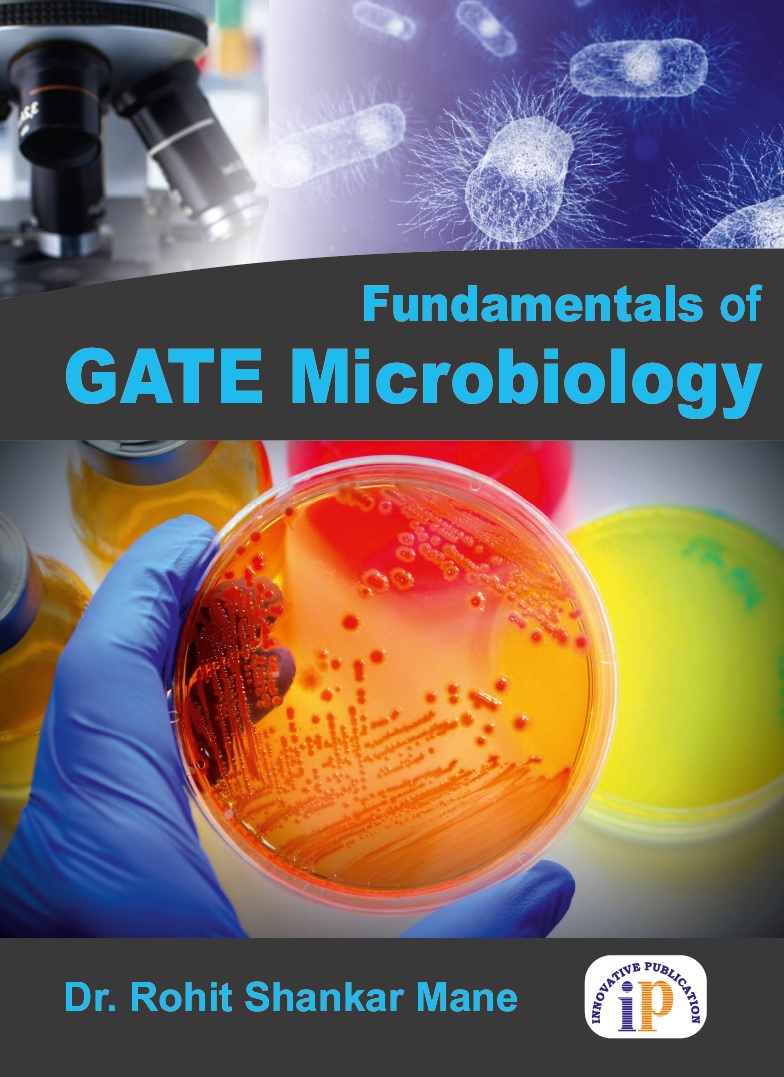Fundamentals of GATE Microbiology
Dr. Rohit Shankar Mane is Microbiology Scientist and Writer. He has Microbiology research experience in the pharmaceutical, agriculture, and medical research industry. His educational qualification is B.Sc. M.Sc. NET. DPM. PGDFSQM. Ph.D., He is the Principal Investigator of DST, DBT, and National geography research projects. He is the inventor of ROVE sterilization method. He is a fellow of Dr. Babasaheb Ambedkar National Research Fellowship, BARTI, India. He has been given the International Young scientist award by AEI, India. He has been given the National Young Scientist award by the American Microbiology Society of America. He is the 4th runner-up of Citrinin against MCF-7 cell line at Dr. Raghunath Mashelkar Award, India. His project entitled “Chitinase and their antifungal effects” got nominated for the GYTI-2018 award under the Indian government. He has published 39 Books and 56 research papers at the International and National levels. He is a reviewer of 26 International Journals and associate editor of 12 International Journals. His interested research area is Microbiology and Agriculture. He is a member of the American Microbiology Society of America and Canadian Microbiology Society of Canada. He is the founder and Director of “Scientist R academy” Research and Publication Institute of India. He is a poet, activist, and is always engaged in microbiology awareness programs.
<p>Fundamentals of GATE Microbiology is intended for GATE Life Sciences aspirants and UPSC-IFSC, IBPS, Forest Officer, UGC-NET, ICAR-ARS, ICAR-NET, CSIR-NET, JRF, SRF, IARI Ph.D., BHU, and Graduates. This book is important because of its broad concepts and explanations related to microbiology as per the GATE syllabus. This book contains eleven sections, each of which contains different concepts of microbiology. This review importantly highlights the history, scope, and development of microbiology and classification of microorganisms; microbial growth in the ecosystem in different conditions, microbial pathogens and immunity systems; different microbiological techniques, and microbial interactions, soil, water, air, and sewage microbiology. The new components which have required a change in worldview in microbiology with modern microbial science and biotechnology have been shown. However, the book is fully GATE syllabus oriented and written by considering their understanding abilities for competitive exams and graduate studies.</p><div><br></div>











